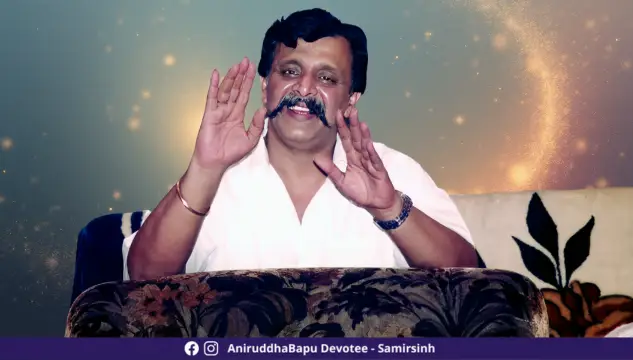What does the human ‘heart’ mean exactly?

Every human being is indeed an incarnation of the Paramatma. A hundred and eight percent! No matter how sinful a person may be, the Jeevatma he carries within himself is nothing but an infinitesimal part of the Paramātma. The only difference is that some may have developed it within, while others have not yet done so. In the sinner, He remains merely as a witness (non-active), whereas in the virtuous, He is ever-active. That means to say, the interaction between any two individuals is like an individual who is an infinitesimal part (Ansh) of the Paramatma interacting with another individual who is also an infinitesimal part of the Paramatma (remaining active or non-active). In other words, it is one form of Vishnu relating to another form of Vishnu.
We usually think of the heart as a pump that supplies blood. Yes, it is. That meaning is certainly there in Budhakaushika Rishi's mind, no doubt about it. But beyond that when we ask, “Does this person have a heart or not?”, we do not mean whether he has a blood-pumping organ. Rather, we mean that does he has any feelings? Any empathy? Any compassion? Any love? When we say his heart is like a stone, His heart is made of rocks and stones, what do we mean? It means the person has no emotions. Or the only emotion he has is harshness, rigidity and not tenderness. He has no affection or love. There is no slightest trace of warmth or softness within him.
So what is the heart? It is the core and the very essence of love. That is why, even symbolically, we draw a heart pierced by an arrow when we talk about love. Isn’t that true? Because the heart represents the abode of love. And it is not just the love between a husband and wife. The heart alone is the dwelling place where everybody’s love resides. In other words, we must understand that wherever love resides within us, that place itself is called the heart. It would be incorrect to say - ‘the heart is the abode of love’. Rather, the place where love dwells within me is what we call heart. Therefore, Rishi Budhakaushika prays, “May Jamadagni protect this heart!”
Remember, the life of a person without love in it becomes empty and barren. We always see, there is always a battle between good and evil in this world. Do you know where all the cunning, deceitful people finally lose? They lose only before love. Because these evil people harbour no love within them. They cannot understand love. That is why where do they get deceived? They are deceived in the very place where there is deep, intense love. Before such love, they are bound to accept defeat. There is nothing they can do.
You may ask, “In our entire body, in this Deha, where exactly does love dwell? Is it in the brain or situated in the chest or in the throat? Where is it located? What exactly is this heart?” When I reflect on this, I realize why does a human being love? There are two reasons: either for some gain or because it brings some benefit or goodness. But tell me, does a person ever love something that neither benefits him nor brings him any good? No, never. Not at all, 100%.
In every cell of my body, there is a “heart.” Not in the brain but in every single cell. Every cell in my body, except nails and hair (because they are dead matter), has a heart. Every cell in my body has a heart because every cell has rasa — the vital-fluid we call protoplasm. It is owing to this fluid that the cell is alive, it is owing to this fluid that the cell can function; it can function effortlessly. This rasa is present not only inside every cell, but also outside it. If the fluid inside the cell dries up, the cell dies. If the fluid outside the cell dries up, the cell also dies. So, the presence of this rasa, both within and around the cell, is absolutely essential for life. Rasa!
How do we describe Lord Shri Krishna? ‘Raso vai saha, Rasarājah’— He is the very essence of rasa, the King of rasa. He is the rasa of every individual, of the universe — that is Bhagwan Shri Krishna, that is the Paramatma, that is Shri Ram! And this rasa itself is the “heart.” We must understand this. The heart is not some separate thing, but the very rasa that pervades our whole body. Not lymph — lymph is different. Rasa means protoplasm, the fluid that is either intracellular or extracellular, all of that we call rasa and in that rasa itself dwells the heart, tenderness and warmth; and where does God reside within us? He acts through this rasa. But where does He actually dwell? As long as in our mind there is the thought, ‘I must gain benefit from Him, I must secure my welfare through Him’, He remains “He,”. He is not in the heart.
But when my thought changes to, ‘Having Him alone is my welfare. To attain Him alone is my true benefit’, then He is no longer remains “He.” He dwells inside of me. We must understand that as long as I want to gain something from him, I want to benefit from him, He remains “He”, because He is far away, He is distant. But when I say that in attaining Him itself lies my welfare and that in attaining Him lies my benefit, He no longer remains “He” because He then already resides in the heart. He mingles in every Rasa in our lives. This is the place where my heart lies. But for this to happen, I must decide whether I want to seek benefit or gain from Him, or to accept that “attaining Him” itself is the highest welfare.
